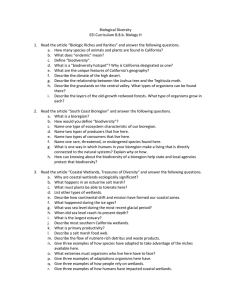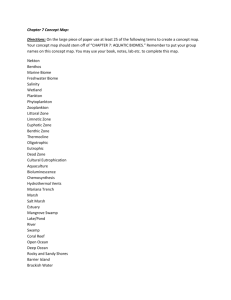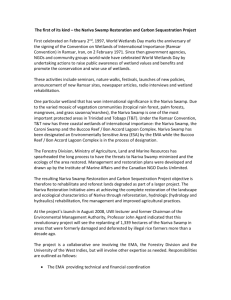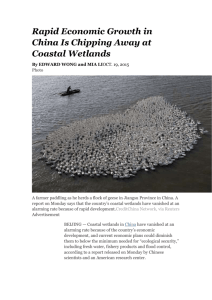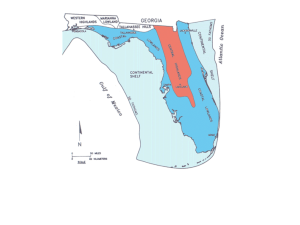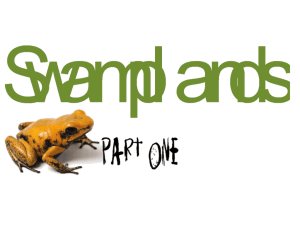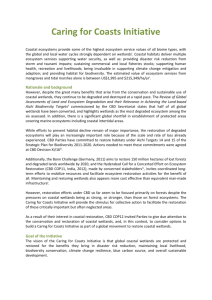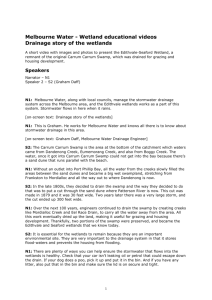Nelson Coastcare Inc (Word
advertisement
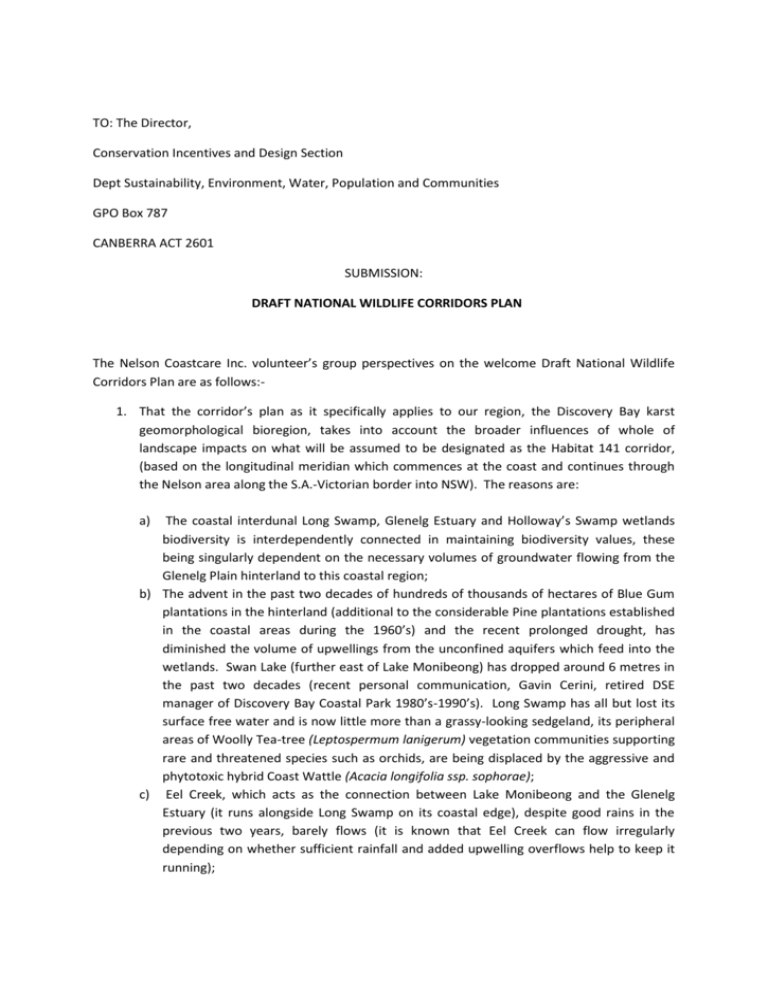
TO: The Director, Conservation Incentives and Design Section Dept Sustainability, Environment, Water, Population and Communities GPO Box 787 CANBERRA ACT 2601 SUBMISSION: DRAFT NATIONAL WILDLIFE CORRIDORS PLAN The Nelson Coastcare Inc. volunteer’s group perspectives on the welcome Draft National Wildlife Corridors Plan are as follows:1. That the corridor’s plan as it specifically applies to our region, the Discovery Bay karst geomorphological bioregion, takes into account the broader influences of whole of landscape impacts on what will be assumed to be designated as the Habitat 141 corridor, (based on the longitudinal meridian which commences at the coast and continues through the Nelson area along the S.A.-Victorian border into NSW). The reasons are: a) The coastal interdunal Long Swamp, Glenelg Estuary and Holloway’s Swamp wetlands biodiversity is interdependently connected in maintaining biodiversity values, these being singularly dependent on the necessary volumes of groundwater flowing from the Glenelg Plain hinterland to this coastal region; b) The advent in the past two decades of hundreds of thousands of hectares of Blue Gum plantations in the hinterland (additional to the considerable Pine plantations established in the coastal areas during the 1960’s) and the recent prolonged drought, has diminished the volume of upwellings from the unconfined aquifers which feed into the wetlands. Swan Lake (further east of Lake Monibeong) has dropped around 6 metres in the past two decades (recent personal communication, Gavin Cerini, retired DSE manager of Discovery Bay Coastal Park 1980’s-1990’s). Long Swamp has all but lost its surface free water and is now little more than a grassy-looking sedgeland, its peripheral areas of Woolly Tea-tree (Leptospermum lanigerum) vegetation communities supporting rare and threatened species such as orchids, are being displaced by the aggressive and phytotoxic hybrid Coast Wattle (Acacia longifolia ssp. sophorae); c) Eel Creek, which acts as the connection between Lake Monibeong and the Glenelg Estuary (it runs alongside Long Swamp on its coastal edge), despite good rains in the previous two years, barely flows (it is known that Eel Creek can flow irregularly depending on whether sufficient rainfall and added upwelling overflows help to keep it running); d) A drain cut in previous decades of land development still allows any surplus outflow from Lake Monibeong out to sea (i.e. Noble’s Rocks outlet) instead of into Eel Creek. With the more intensive land use and land management practices, any such drains need to be blocked off to allow water to accumulate again into the main Long Swamp complex to restore this wetland’s former biodiversity complement. The Nelson Coastcare Inc members request that the Draft Wildlife Corridor Plan take into account the need to restore the natural values of these precious, nationally significant wetlands to the limit of practical feasibility, to ensure that the Habitat 141 corridor, when designated and implemented, serves its purpose effectively in enabling opportunity for biodiversity to move, to be resilient in the face of land management and climate changes and to be able to evolve without undue compromise. Yours sincerely Leila Huebner Nelson Coastcare Inc. project co-ordinator
